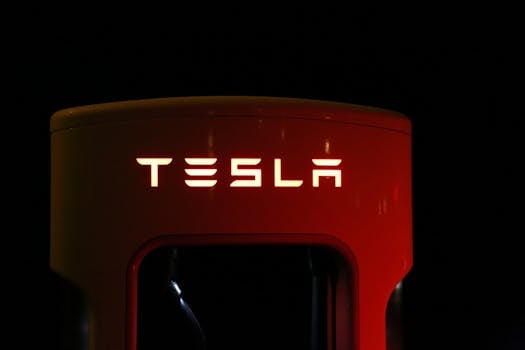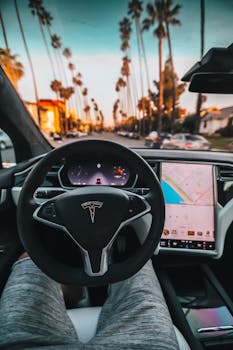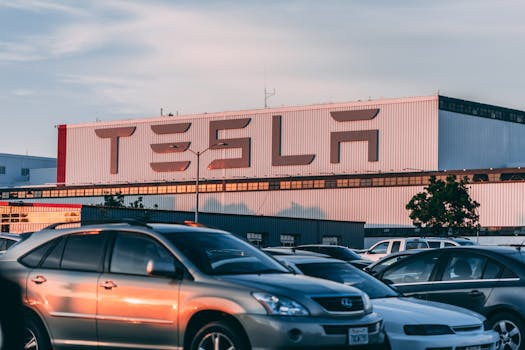
"Plug In or Gas Up: Unraveling the Dos and Don'ts of the EV Revolution"
The world is on the brink of a transportation revolution, and it’s electrifying! With the rapid advancement of technology and growing concern for the environment, electric vehicles (EVs) are becoming an increasingly popular option for many drivers. But, as with any new technology, there are plenty of questions and misconceptions surrounding EVs.
One of the biggest decisions when it comes to EVs is whether to plug in or gas up. Should you opt for a traditional gas-powered vehicle, or make the switch to an electric one? The answer isn’t always clear cut, and it depends on a variety of factors, including your driving habits, budget, and access to charging infrastructure.
In this article, we’ll explore the ins and outs of EVs, from the basics of how they work to the pros and cons of plugging in versus gasping up. We’ll take a closer look at the costs and benefits of EV ownership, and provide tips for making the most of your EV experience.
Whether you’re a seasoned EV driver or just starting to consider making the switch, this article will provide valuable insights and practical advice for navigating the EV revolution. From charging etiquette to battery care, we’ll cover it all, helping you make informed decisions and get the most out of your EV. So buckle up and get ready to join the ride of the future!

"Embracing EVs: Maximizing the Benefits and Overcoming the Challenges of Electric Cars"
Embracing EVs: Maximizing the Benefits and Overcoming the Challenges of Electric Cars
Electric vehicles (EVs) have gained significant attention in recent years due to their potential to reduce greenhouse gas emissions, improve air quality, and offer a unique driving experience. However, the widespread adoption of EVs is not without its challenges. In this essay, we will explore the benefits of EVs and discuss strategies to overcome the obstacles that hinder their widespread use.
Benefits of Electric Vehicles
- Environmental Impact: EVs produce zero tailpipe emissions, significantly reducing air pollution and greenhouse gas emissions.
- Energy Efficiency: EVs convert a higher percentage of energy from the battery to power the wheels, making them more energy-efficient than conventional internal combustion engine (ICE) vehicles.
- Low Maintenance Costs: EVs have fewer moving parts than ICE vehicles, leading to lower maintenance and repair costs.
- Quiet and Smooth Operation: EVs offer a quiet and smooth driving experience, with instant torque and acceleration.
- Incentives and Support: Governments and organizations worldwide provide incentives, such as tax credits and free charging stations, to encourage EV adoption.
Challenges of Electric Vehicles
- Limited Range and Charging Infrastructure: EVs typically have a shorter driving range than ICE vehicles, and the charging infrastructure is not as widespread or as fast as traditional fueling stations.
- High Upfront Costs: EVs are generally more expensive to purchase than their ICE counterparts, although the total cost of ownership can be lower due to lower operating costs.
- Battery Durability and Recycling: While EV batteries have improved significantly, concerns remain about their long-term durability and the environmental impact of battery disposal.
- Charging Time: Charging an EV can take longer than refueling an ICE vehicle, particularly for fast charging.
Strategies to Overcome Challenges
- Invest in Charging Infrastructure: Governments and private entities should invest in charging infrastructure, particularly in public and workplace charging stations.
- Encourage Research and Development: Continued investment in battery technology and charging solutions can help address range anxiety and charging time concerns.
- Implement Smart Charging Solutions: Smart charging, which involves managing the timing and rate of EV charging, can help balance the grid and reduce the strain on the electricity network.
- Offer Incentives and Education: Providing incentives and education to consumers can help increase EV adoption and promote better understanding of their benefits and limitations.
- Collaborate Across Sectors: Collaboration between governments, industries, and research institutions can help accelerate the transition to EVs and address the challenges associated with their widespread use.
In conclusion, electric vehicles offer numerous benefits, including reduced emissions, energy efficiency, and lower maintenance costs. While challenges such as limited range, high upfront costs, and battery durability remain, strategic investments in charging infrastructure, research and development, and education can help overcome these obstacles and pave the way for a more sustainable transportation future.



0 Comments